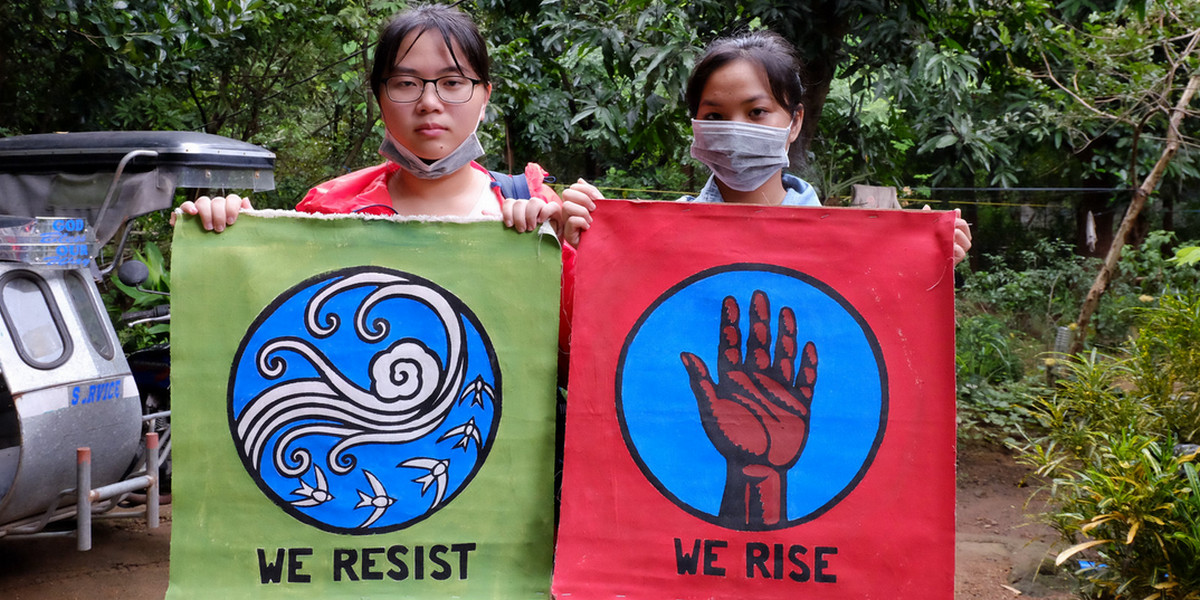This is the question raised by Axelle Fischer, Secretary General of Entraide et Fraternité (EF), in an analysis published in February 2022.
For Entraide et Fraternité, decolonisation, the fight against global warming and gender mainstreaming are intrinsically linked. “There can be no real progress in protecting our planet without the full participation of people from impoverished countries and without taking into account the voice of women” writes Axelle Fischer, who puts forward three arguments:
- Firstly, because these three questions are issues of justice. They have become unavoidable and urgent if we do not want to see the anger and conflicts caused by the deliberate and continuous exclusion of women and people in impoverished countries worsen; if we want to protect the planet and the living beings that inhabit it… plants, animals and humans.
- Secondly, because the mechanisms of omnipotence and paternalism that historically guide the exploitation of nature and people are now opposed with courage and freedom, as it is increasingly featured in media and therefore unavoidable in the public sphere.
- Finally, because these three themes raise the question of the actors involved: the construction of sustainable solutions will not be possible without the inclusion of women, diaspora communities and the people of countries on the front line of global warming.
This is what EF and its partners are trying to do in various ways.
Towards a decolonised partnership
The idea that the Western development framework is “superior” is still prevalent and a sort of intellectual inertia urges us to be clear on this issue: development cooperation is in some ways ingrained with colonial approaches. Is it possible to be an international solidarity NGO and to support empowerment while unilaterally imposing heavier and heavier administrative and cultural constraints? In other words, how can the NGO sector be an actor in this process of decolonisation of our international relations?
In order for so-called partnerships (based on equality) to be at the centre of popular struggles for emancipation and liberation in the countries of the South, it is necessary to take into account the history, culture, traditions, heritage and specific forms of organising that give people their own identity and their right to self-determination.
Learning from the past, unlearning what is perhaps too deeply rooted in us and sharing power: these three approaches will allow us to unlock little by little the padlocks of this colonial heritage that still contrains us.
Converging struggles against global warming
The climate issue is a matter of justice. This injustice is experienced in every impoverished country where the poorest are systematically the most affected by climate change.
In order to keep global warming below “1.5°C”, we must work together: NGOs, social movements, diaspora groups and partners in impoverished countries… This issue requires a broad convergence of forces and strategies, it is a question of co-responsibility. EF translates its commitment to climate change into long-term work with its partners to address the root causes of the problems. This also means linking struggles: climate justice, social justice, food sovereignty, «gilets verts/gilets jaunes». Finally, it means giving a voice to the people concerned, rather than speaking on behalf of people. This should be done in a logic of decolonisation, as we pointed out earlier.
And what is the role of women in all this?
Gender equality is a systemic issue. Talking publicly about gender in a Catholic NGO is not easy. Is making it a transversal, and therefore ever-present, axis of EF’s work, a challenge that makes sense, or does it rather risk creating ambiguity?
It seems to us that some members of the Church today are positioning themselves in contradiction with an important element that inspired the construction of Catholic thought and action: the recognition of victims and the excluded in our societies, who are mostly women, but also the recognition of their role in social change and the protection of our “common home”. Indeed, there is currently no real debate within the Church on the fact that women are victims. It is a matter of credibility for the Church to speak out on this issue, to say that the Church is striving for equality and respect for human dignity.
The integral conversion called for by Pope Francis in the encyclical Laudato Si’ requires harmony with all the living beings on Earth. Indeed, we can identify many positive developments, among others in the place of women within Church structures. Pope Francis, for example, has launched an important movement to elevate the position of women, for instance by appointing women to roles with high levels of responsibility. But there are still many steps to be taken before the issue of equality and equity between women and men becomes an integral part of the life of the Catholic Church, which is still marked by a patriarchal and hierarchical logic.
Like the question of decolonisation, the question of gender confronts us with our wounds, with the injustices that we sometimes feel complicit in, to which we have become accustomed and which are not comfortable. We are faced with a debate over words and concepts. To speak of “gender” within the Church risks offending ethical sensibilities. Gender can be understood as directly linked to questions of sexual morality and the non-acceptance of biological differences. Similarly, talking about gender inevitably shakes the comfort of privilege. It leads us to talk about victims of injustice, but who benefits from these injustices? As a matter of fact in the Church, the beneficiaries are white men.
The link with colonialism is very clear. To speak of gender is to speak of justice, dignity, equality, to recognise the systems of exploitation and the institutional and human structures, and to see how to deconstruct them. To keep evolving our mentalities, the logic of lifelong learning is inspiring because it is first about daring to speak out, to recognise the facts and to understand how they work, in order to then start deconstructing habits.
To fight global warming effectively, it is necessary to involve the main people concerned, namely the poorest and most excluded… The people of poor countries and particularly women. On environmental issues, the place of women must become central for two main reasons:
- Climate change exacerbates gender inequalities: women are the main victims of climate change.
- Women are the main actors of innovative solutions.
Conclusion
Entraide et Fraternité takes a positive and proactive approach and advocates for a world that combines prosperity, respect for the planet’s limits and social justice. It is a utopia, a dream that can become reality if there is creativity and willingness to learn from the past, to unlearn what we need to get rid of and which is deeply rooted in us, and to accept to share power.
Notes:
-This article is a non-exhaustive summary of Axelle Fischer’s analysis paper following the study “Acting for social justice in the world” carried out for the 60th anniversary of Entraide et Fraternité. This summary was translated into English by CIDSE.
–Entraide et Fraternité is the Belgian French-speaking member organisation of CIDSE.

Axelle Fischer works as Secretary General of Entraide et Fraternité since February 2018. Prior to that, she was Secretary General of the Commission Justice et Paix-Belgique from 2008 to 2018.
Cover photo Credit : AC Dimatatac, 350.org – CC 2.0 Generic (CC BY-NC-SA 2.0)

